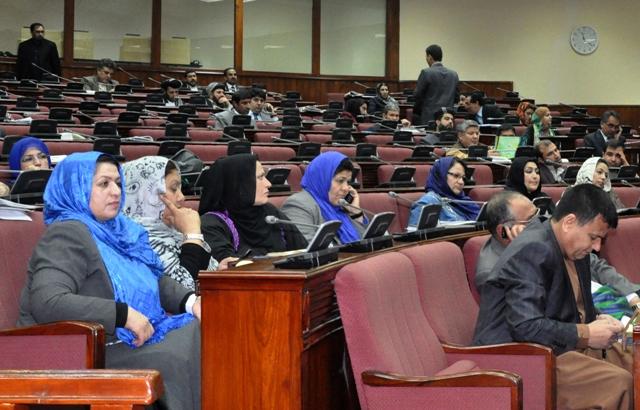KABUL” contributed to increasing prices of essential commodities, including food, in the country.
The ministerial explanation to the Wolesi Jirga comes amid complaints by residents in Kabul and other parts of the country about sudden increases in the rates of liquefied gas, firewood and food items.
The lower house summoned Zakhilwal along with Da Afghanistan Bank (central bank) chief Noorullah Dilawari and Deputy Commerce and Industry Minister Muzammil Shinwari to explain reasons behind the increasing prices of essential goods.
Zakhliwal said a number of countries had recently mounted political pressure on Afghanistan and as a result, the afghani was losing its value against the US dollar.
Linking this to the increase in prices of essential daily-use goods, the minister said Afghanistan depended on imports, which involved US dollars.
He warned the prices would not go down as long as the foreign political pressure continued. However, he did not name any country.
President Hamid Karzai says the US has been making threats in the dispute over the bilateral security deal, which would allow thousands of US and NATO.
Karzai refused to sign the key deal last month when a Loya Jirga in Kabul urged him to do so over the next seven weeks. The US and allies have been asking the president to sign it this year.
Zakhliwal said the government had to close all entrances to Kabul for four days to hold the Loya Jirga due to security concerns and the blockades led to hike in prices. He said only a reversal in the depreciation of afghani against foreign currencies, especially the US dollar, could help bring down the prices of goods.
A lawmaker from Faryab province, Naqibullah Faiq, said prices would further go up if the government did not sign the security deal with the US. He insisted the deal should be signed at the earliest.
Shinwari said the closure of entrances to Kabul and a bomb blast in front a Pakistani customs office at the eastern Torkham border had contributed to the increase in prices.
The deputy commerce minister said Afghan traders would previously purchase liquefied gas from a Turkmen company, which had stopped extracting gas. The company would provide Afghan traders the gas for a cheaper rate than current charged by other foreign firms, the minister said.
Another reason, he said, the number of containers carrying goods through the Salang Pass, which links the capital Kabul with northern provinces, declined in winter due to heavy snowing.
He said the ministry had 2,243 tonnes of gas in storages and it sold a kilo for 59 afghanis in the market.
However, the rate of a kilogram of gas hovers between 75afs and 80afs in Kabul.
Shinwari said the country’s annual gas requirement stood at 350,000 tonnes.
But Herat lawmaker Manawar Bahadari said the commerce ministry had allowed traders to export gas to Pakistan after its import to Afghanistan. “I have documents signed by Shinwari that show traders are allowed to export the imported gas,” said the lawmaker, who presented those documents to Speaker Abdul Rauf Ibrahimi.
But Shinwari said there had been no legal problem in again exporting goods. “I admit I have signed these documents to allow the exports.”
Zakhiwal also said exporting goods for a second had no legal problem.
The central bank chief, Noorullah Dilawari, acknowledged a close watch on the market could not been maintained to keep the value of afghani stable against foreign currencies.
He said the bank had issued more than $3 billion to the market this year to keep the afghani’s value in a stable position against the dollar.
However, he said many foreign currencies had fallen against the dollar over the past one year, when the afghani fell against the dollar by 8 percent, the Pakistani rupee by 13 percent, the Indian rupee by 8 percent and Iranian currency by 40 percent.
Currently, 190 billion afghanis are circulated in the country’s bazaars, said Dilawari, who blamed hike in prices on concerns found among the people about foreign troops’ withdrawal and the upcoming elections next year.
ma
Visits: 1









GET IN TOUCH
NEWSLETTER
SUGGEST A STORY
PAJHWOK MOBILE APP